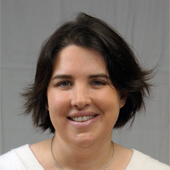Somer Bishop is a clinical psychologist and professor in residence of psychiatry at the University of California, San Francisco.

Somer Bishop
Assistant professor
University of California, San Francisco
From this contributor
Rethinking autism assessments in the time of COVID-19: Q&A with Bishop, Zwaigenbaum
Moving most clinical assessments online during the coronavirus pandemic has created a digital divide while closing some geographical ones, say Somer Bishop and Lonnie Zwaigenbaum.

Rethinking autism assessments in the time of COVID-19: Q&A with Bishop, Zwaigenbaum
Questions for Bishop, Havdahl: Tantrums trick autism tests
Children with low intelligence or behavioral issues — but not autism — may meet the criteria for autism on standard diagnostic tests.

Questions for Bishop, Havdahl: Tantrums trick autism tests
Seeking precise portraits of girls with autism
Researchers need to consider new ways of capturing how autism manifests in girls, who may find clever ways of camouflaging their symptoms.
Gauging intelligence in autism over time
Adapting traditional tests of intelligence for people with intellectual disability can deflate their scores over time. Somer Bishop calls for tests that more accurately assess intelligence in this group.
Explore more from The Transmitter
Dendrites help neuroscientists see the forest for the trees
Dendritic arbors provide just the right scale to study how individual neurons reciprocally interact with their broader circuitry—and are our best bet to bridge cellular and systems neuroscience.

Dendrites help neuroscientists see the forest for the trees
Dendritic arbors provide just the right scale to study how individual neurons reciprocally interact with their broader circuitry—and are our best bet to bridge cellular and systems neuroscience.
Two primate centers drop ‘primate’ from their name
The Washington and Tulane National Biomedical Research Centers—formerly called National Primate Research Centers—say they made the change to better reflect the breadth of research performed at the centers.

Two primate centers drop ‘primate’ from their name
The Washington and Tulane National Biomedical Research Centers—formerly called National Primate Research Centers—say they made the change to better reflect the breadth of research performed at the centers.
Post-infection immune conflict alters fetal development in some male mice
The immune conflict between dam and fetus could help explain sex differences in neurodevelopmental conditions.

Post-infection immune conflict alters fetal development in some male mice
The immune conflict between dam and fetus could help explain sex differences in neurodevelopmental conditions.
